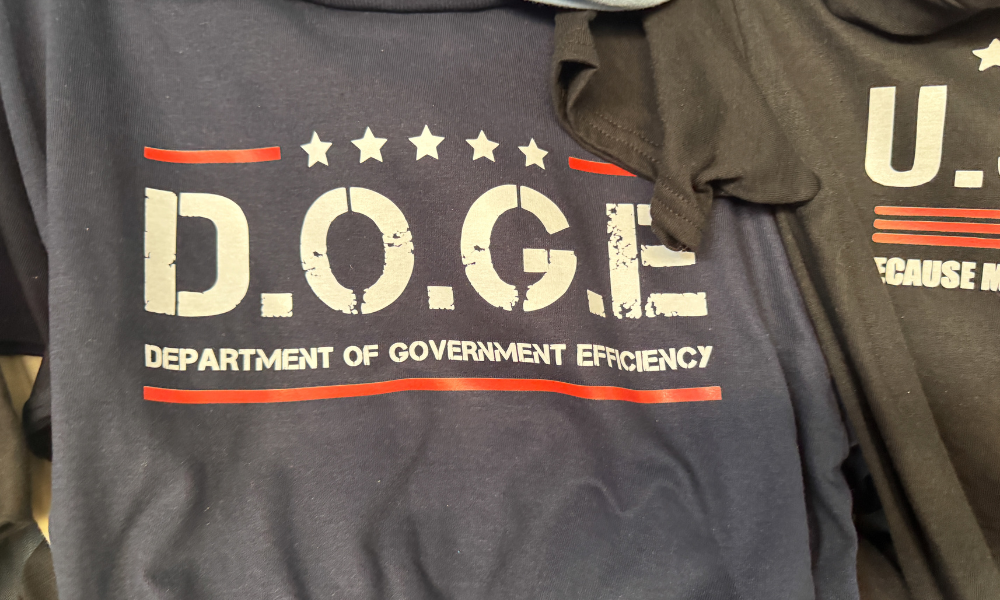Russ Vought steps in to lead DOGE following Musk's departure, continuing efforts to overhaul federal agencies

Elon Musk’s exit from the Trump administration has left key federal agencies destabilized, according to The Guardian, with cancelled aid programs, ongoing legal appeals, and a vacuum in leadership across the Department of Government Efficiency (DOGE).
As reported by Reuters, Musk’s 130-day mandate as a special government employee expired Wednesday night.
The departure followed a period of mounting tensions, with Musk publicly opposing Trump’s tax bill and declaring on X that his role was ending.
As my scheduled time as a Special Government Employee comes to an end, I would like to thank President @realDonaldTrump for the opportunity to reduce wasteful spending.
— Elon Musk (@elonmusk) May 29, 2025
The @DOGE mission will only strengthen over time as it becomes a way of life throughout the government.
A White House official confirmed his “off-boarding will begin tonight.”
According to The Guardian, DOGE's most severe impacts include the shuttering of the government tech team 18F, widespread layoffs at the Department of Health and Human Services, and cuts to the National Oceanic and Atmospheric Administration.
USAid, formerly the world’s largest provider of humanitarian aid, lost 83 percent of its programs, disrupting HIV/AIDS support under Pepfar and other international efforts.
Carl Tobias, a law professor cited by The Guardian, warned the cuts “may take many years and great expenditure of resources to restore,” especially in health.
Lindsay Young, former director of 18F, said, “It’s just so much easier to tear things down than it is to build things up.”
As per The Guardian, DOGE claimed US$140bn in savings and promised software modernization. However, many of its tools—including AI chatbots—were already under development before Musk’s tenure.
While Musk initially pledged DOGE would save US$2tn, Reuters noted that only US$175bn has been claimed, with no independent verification.
According to Reuters, the administration cut 260,000 civilian federal jobs—about 12 percent of the workforce—through buyouts, early retirements, and firing threats.
However, federal courts reversed some agency eliminations, and operational breakdowns followed staffing and budget cuts.
Musk’s departure occurred shortly after he told CBS News that the Republicans’ tax bill “undermines the work that the DOGE team is doing.”
Reuters reported that this criticism angered senior White House staff, prompting internal calls to reaffirm Trump’s support for the legislation.
Musk’s approach also drew growing resistance.
As reported by Reuters, Trump reminded cabinet secretaries in March that staffing decisions rested with them, not Musk.
Musk clashed with cabinet members including Marco Rubio, Sean Duffy, and Scott Bessent, and called trade adviser Peter Navarro a “moron.”
Navarro responded, “I’ve been called worse.”
According to The Guardian, Musk’s appointees—such as Antonio Gracias—remain embedded in key agencies, including the FAA and Social Security Administration.
These staffers reportedly operate with little oversight, accessing sensitive data and creating disarray.
Although at least two close allies—Steve Davis and Katie Miller—have resigned, The Wall Street Journal reported Russ Vought will succeed Musk.
Vought, a Project 2025 figure and proponent of strong executive power, has said he wants civil servants “in trauma” and intends to cut funding.
Despite the backlash, Musk defended DOGE, telling The Washington Post the bureaucracy was “much worse than I realized” and that improving Washington was “an uphill battle.”
In the same interview, he added, “DOGE is just becoming the whipping boy for everything.”
Musk previously dismissed federal telework as a “COVID-era privilege” and predicted mass voluntary terminations.
According to Reuters, he told Tesla investors on April 22 that he would scale back government involvement to focus on his businesses.
His critics, however, see lingering damage. As noted in The Guardian, agency services remain crippled with no clarity on recovery.
A Pentagon announcement ended Musk’s directive requiring weekly employee reports, which staff had largely ignored.
Public and shareholder backlash has grown. Tesla sales in Europe dropped 49 percent in April year-over-year, according to The Guardian.
Musk, who donated nearly US$300m to Republican campaigns, said in Qatar this month, “I think I’ve done enough,” and pledged to reduce political spending.
USA Today published a satirical letter from “America” addressing Musk’s behaviour during his DOGE tenure.
The letter criticized him for mocking federal staff, embracing extremist politics, and contributing to reputational damage, concluding that while burning Teslas was “uncool,” his own conduct had alienated many.
Sources: Reuters; The Guardian; USA Today; CBS News; The Washington Post; Wall Street Journal



